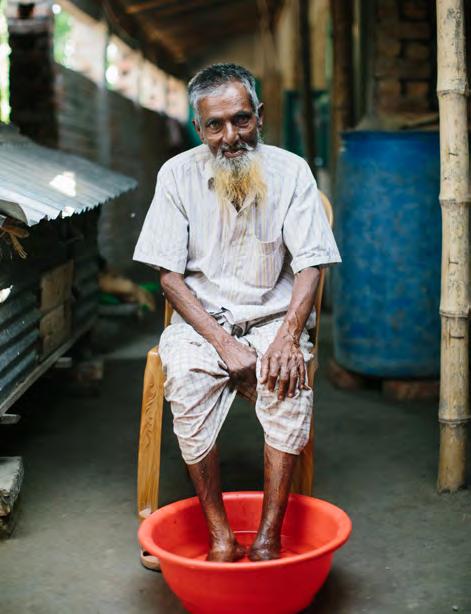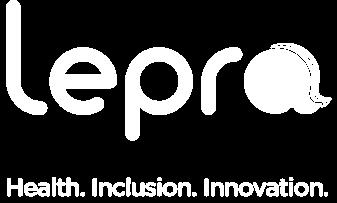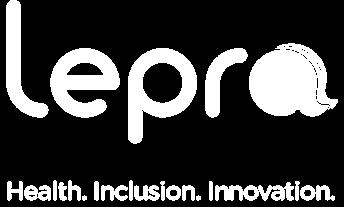










As we move into the winter months, we are excited for Lepra’s Senior Programme Manager Maria del Mar Marais to introduce our Giving ‘Shoesday’ matched-funded appeal - £1 from you, we get two!
It is my distinct pleasure to introduce you to this special footwear edition of Lepra News, to mark the start of our annual Giving ‘Shoesday’ awareness campaign and the launch of our ‘£1 from you, we get two’ matchedfunded appeal which commences 2 December.
If you receive Lepra’s regular news updates, you may have noticed what a busy period it has been for the organisation, as we work with our partners to implement our 2024-2030 ‘Health, Inclusion and Innovation’ strategy, which is already helping to change the lives of countless vulnerable people across India and Bangladesh.
I recently attended the 16th Neglected Tropical Diseases NGO Network Conference (NNN) in Kampala, Uganda, which gathered practitioners, policymakers, researchers, and community leaders from over 50


countries to discuss challenges and share innovative solutions for advancing the global fight against neglected tropical diseases (NTDs).
The opening ceremony was both inspiring and thought-provoking, led by individuals with lived experience of NTDs. Their messages underscored the importance of ensuring meaningful inclusion of affected persons at all levels of programme design and decision making.
In partnership with the Brighton and Sussex Medical School (BSMS), Lepra co-facilitated a workshop under the theme Community-Driven Innovations – Leveraging Local Knowledge to CoCreate Solutions.

The session featured insightful talks and an interactive consultation with participants on the outcomes of the UPLIFT project for community-based group development, developed in partnership with Effect Hope, GLRA and the LSTM.

Maria del Mar Marais and LEPRA Society’s Alok Kumar Roy at the 2025 NNN conference.



We were honoured to host Dr. Beatriz Miranda Galarza, UN Special Rapporteur on Discrimination Against Persons with Leprosy (Hansen’s Disease), who in her keynote address emphasised the importance of framing our work within the human rights frameworks, the gendered dimensions of care, and the use of participatory action research as a means to translate principles into action.
Our colleagues at BSMS also shared their collaboration with The Leprosy Mission Trust India on forming the Research Group enabling people with lived experience of leprosy to lead research design, analysis, and dissemination.
The outcomes of this landmark event shared a common theme – the importance of tackling NTDs. Partnership working is now not only desirable, it has become a central pillar to our strategic approach, allowing us to share valuable information, resources and research to help accelerate progress towards common goals.
And no partnership is more valuable than our partnership with the very people we support. Co-creating and valuing lived experience is helping to create more equitable and sustainable

structures and services which offer hope for a future free from the physical, social and emotional impact of NTDs.
People such as Haider, who for this issue of Lepra News has kindly shared his lived experience of leprosy, and the key role
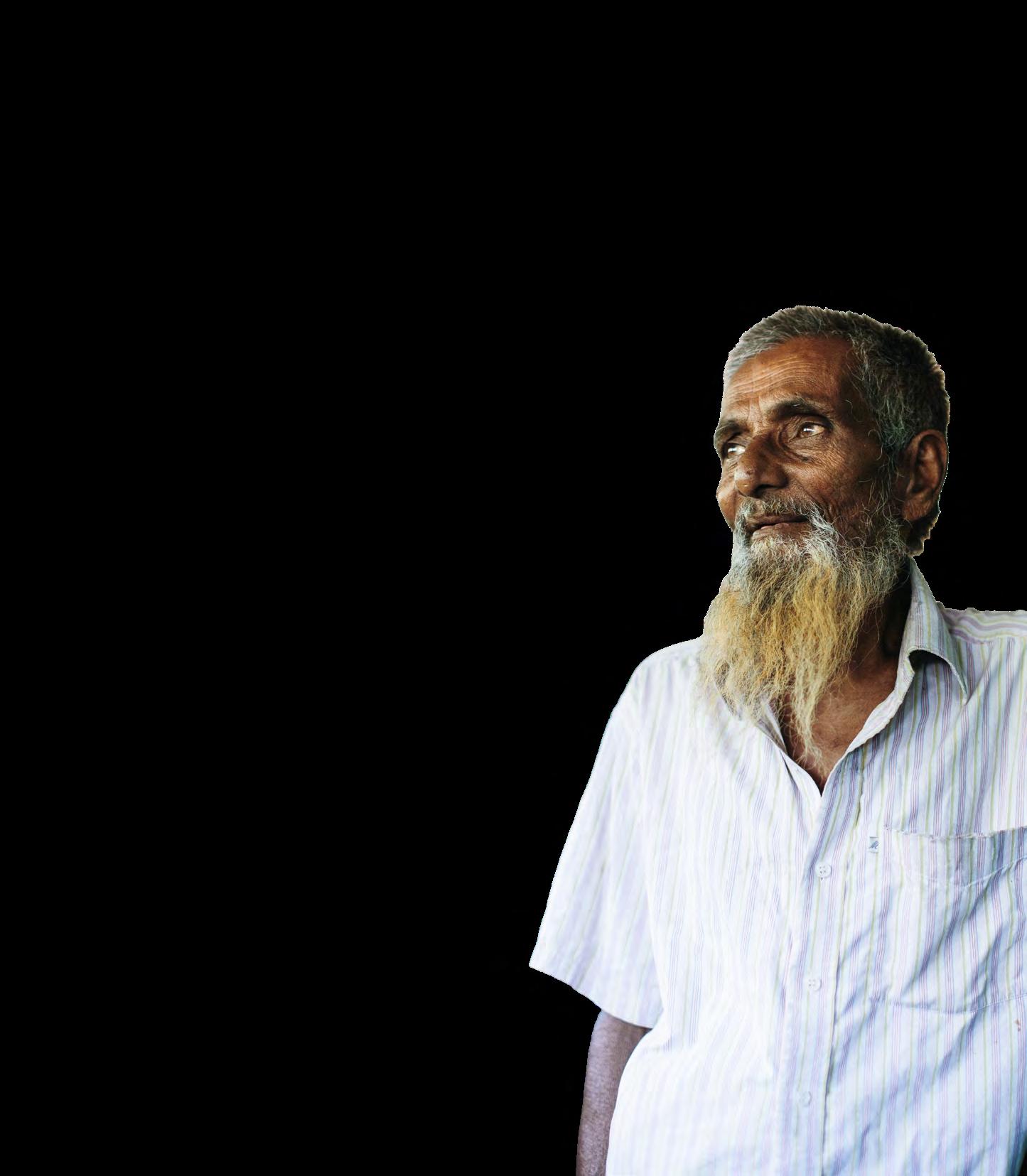

LEPRA Society, our sister organisation in India has been recognised by two prestigious awards - The Mahatma Award for Good Health, and the WHO Public Health Champion Award.
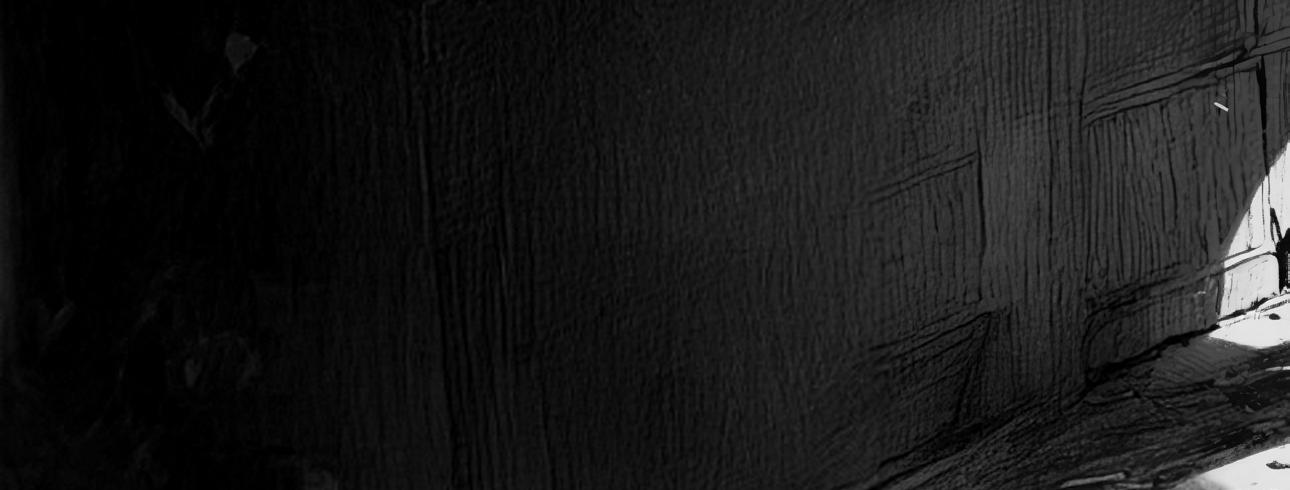

LEPRA Society’s DiMPLE initiative has been awarded the prestigious World Health Organization (WHO) South-East Asia Regional Award for Public Health Champion for its innovative and inclusive approach to leprosy care.
Selected from over 50 applications after a rigorous evaluation process, the award recognises DiMPLE’s exceptional contribution to improving public health in the region. By using simple digital tools - a smart phone, photos, and a mobile app, ‘DiMPLE’ enables remote measurement and custom footwear fabrication for people affected by leprosy, reducing risk of ulcers and
This recognition not only honours LEPRA Society’s commitment to innovation and dignity in healthcare but also shines a spotlight on the often-overlooked needs of vulnerable communities across South-East Asia.
Leprosy may be curable, but for many, its aftermath includes nerve damage and loss of sensation in the feet, leading to painful ulcers, infections, and, in severe cases, permanent disability.
While India’s National Leprosy Eradication Programme distributes over 114,000 pairs of protective footwear each year, standard solutions fall short for those with complex foot conditions.

- Digital Measurement of Paduka (foot) for people affected by leprosy is a simple yet powerful innovation by LEPRA Society. The initiative uses a smart phone, a photo, and the KoboToolbox app to capture accurate digital foot measurements.
These are uploaded to a cloud database, enabling remote fabrication of custom

Arun
Kumar Kandukuri, Head of Programmes collecting the award on behalf of LEPRA Society.



footwear, without the need for repeated clinic visits. The app is available in English, Hindi, and Telugu languages, ensuring wide accessibility.
Since its launch in August 2023 in Telangana and Andhra Pradesh, DiMPLE has delivered 981 pairs of custom-made footwear, helping prevent ulcers, restore mobility, and preserve dignity for people in under-served areas. People no longer face long journeys or wage losses to access care.
For over 35 years, LEPRA Society has worked at the grassroots level to provide care rooted in dignity, inclusion, and innovation. DiMPLE is a natural extension of this mission - low-cost, high-impact, and scalable across geographies.
It is a powerful recognition of the invisible struggles faced by people affected by leprosy. It shines a muchneeded spotlight on resilience, rights, and unmet needs of the communities we support. It serves as strong call to action for continued investment in neglected tropical diseases and inclusive public health solutions.
Looking ahead, LEPRA Society plans to scale DiMPLE further, explore artificial intelligence powered self-measurement tools, and advocate for stronger policy support to end disability and stigma.
To read more about LEPRA Society’s awards, please visit our news page at www.lepra.org.uk or scan the QR code below.



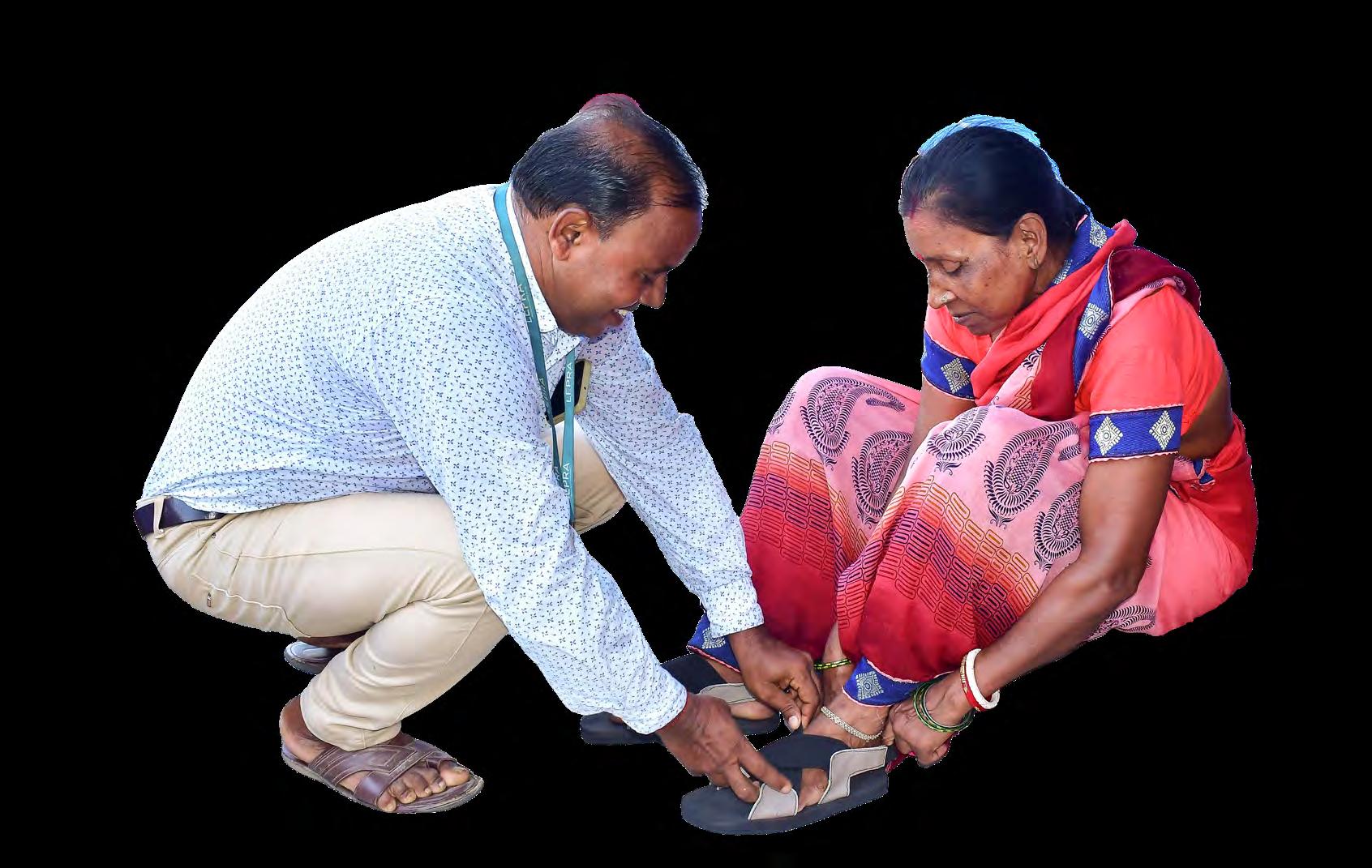

For our special footwear edition of Lepra News, we report on the inspirational people who have overcome the debilitating impact of leprosy, thanks to Lepra’s specialist protective footwear.
Haider is a 77-year-old grandfather from Bangladesh, he lives with his son and daughter and their children in a small village near the town of Bogura.
Throughout Haider’s life, he has had physically demanding jobs as a labourer and a rickshaw puller. Although his income is low, he is proud of his hard work that has helped to sustain his family as he has watched them grow, thrive and have children of their own.
Incredibly, Haider lived with undiagnosed leprosy for many years
He first noticed symptoms in the mid90s, with small blisters developing around his toes. He was able to ignore the blisters at first, but over time they became infected, and ulcers developed, which could no longer be hidden.
People in his local community began to notice his injuries and became fearful that his condition might be contagious. Many people believe that diseases such as leprosy are rooted in sin, and so he experienced significant prejudice and discrimination, and the family were ostracised as a result. Becoming isolated from his community was very difficult for Haider, and he fell into a
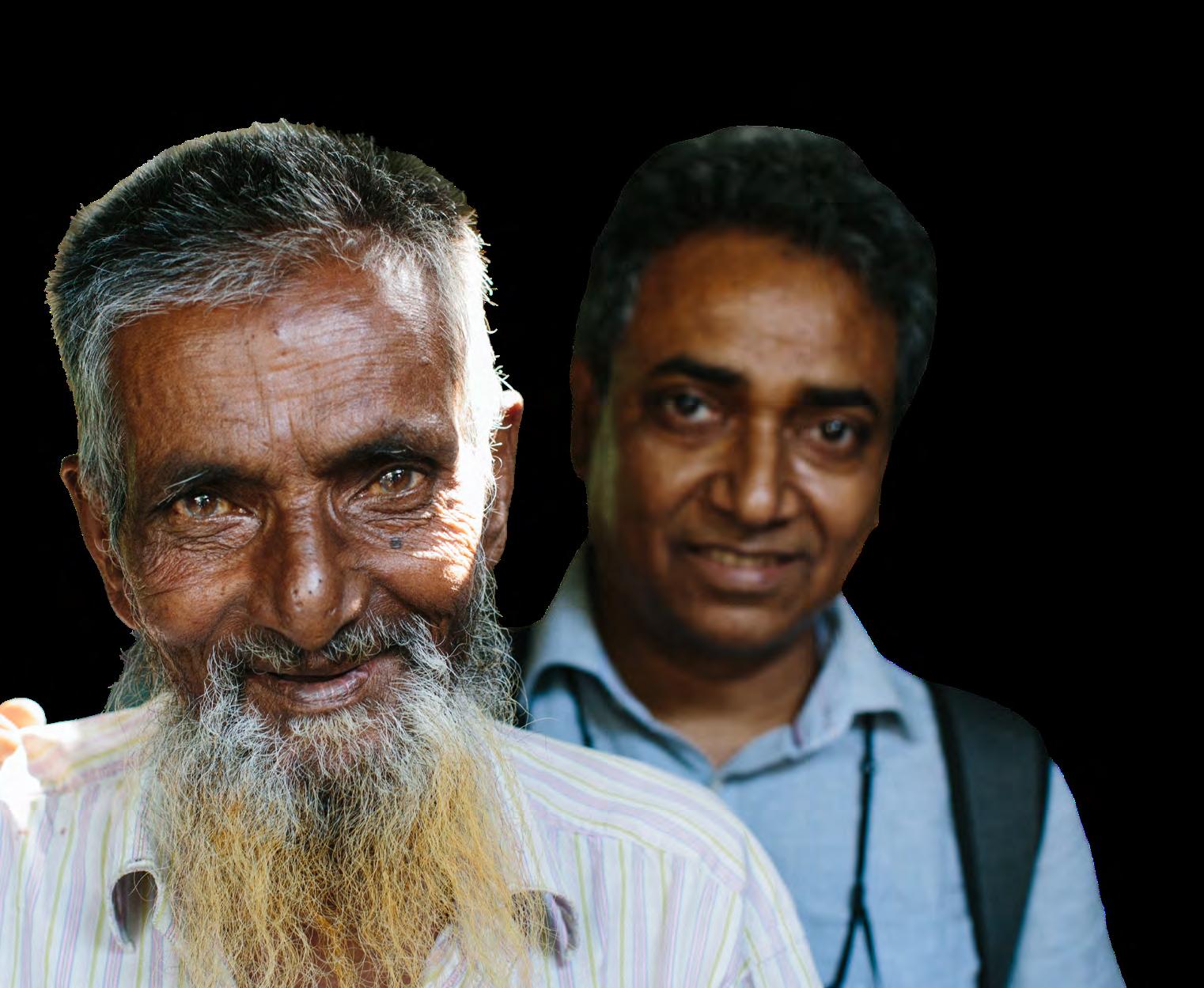
Haider was desperate to with so many financial barriers to professional healthcare, many people are forced local healers to try and cure their little he had visiting healers, but none of their traditional treatments were improving his condition.

Lepra’s Md. Waheduzzaman Polu, providing ongoing support for Haider


As his health deteriorated, he found it almost impossible to continue work.
Lepra’s team in Bangladesh first met Haider by the roadside in the early 2000s, where he was struggling and exhausted by the discomfort of his worsening disabilities.
He was taken to the hospital at Nilphimari, nearly 100 miles away from Bogura. There he was diagnosed with leprosy and began treatment for his wounds and began a 12-month course of multidrug therapy (MDT).
Unfortunately, his injuries were so severe, some of his fingers and toes needed to be amputated. He stayed at the hospital for several weeks as he recovered.
To support his recovery, Lepra’s specialist health workers provided Haider with his first pair of specialist protective shoes, custommade by a footwear technician in multicellular rubber they protect the vulnerable points of an individual’s feet.
With Lepra’s footwear, further injuries can be prevented, and with good selfcare practice, existing ulcers are able to heal
With ongoing support from Lepra, Haider was able to return to work, and he was gradually able to rebuild his independence, confidence and selfesteem.
Since retired, his son now pulls his rickshaw, helping to maintain income for the family and allowing Haider to dedicate his life to supporting other people in his community who are also facing the physical, social and emotional impact of leprosy.
To read more inspirational stories of
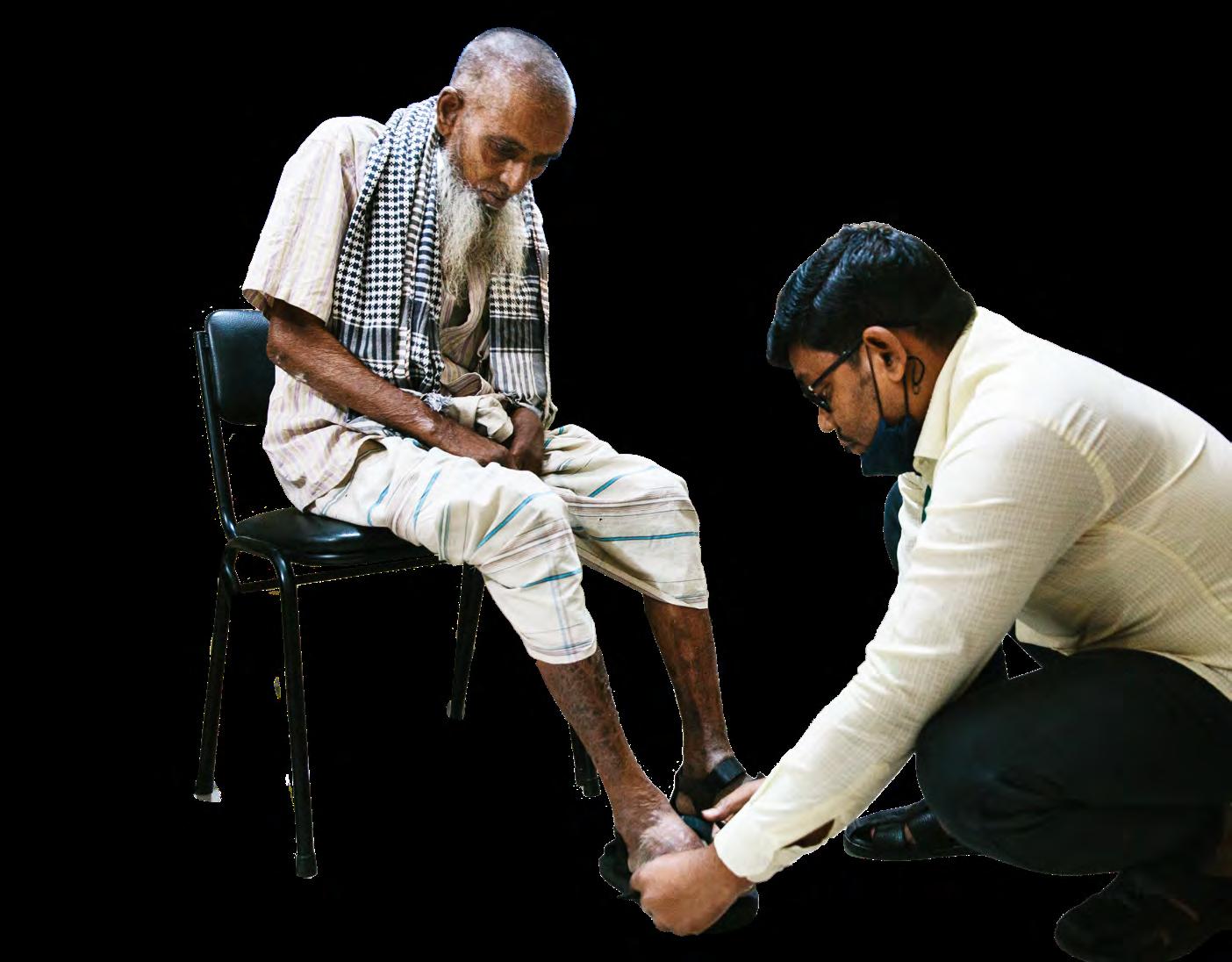




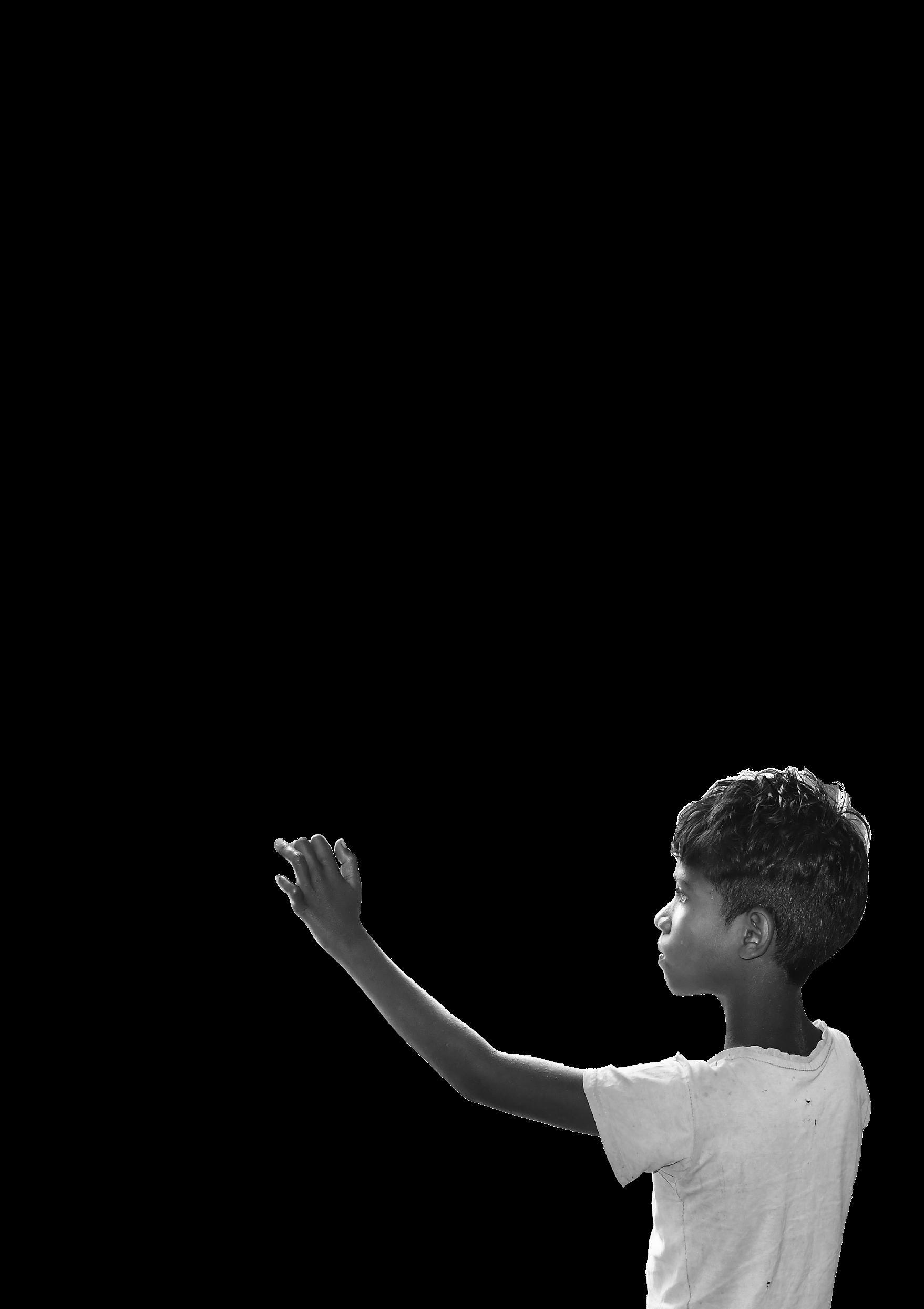
Many people will be familiar with the north-eastern state of Assam; a lush corner of India famous for its tea garden industry which provides a modest income for thousands of labourers throughout the region.

Haddenham Healthcare and Tea People to support the opening of two specialist health centres in Assam.
This partnership marks a significant step in expanding access to essential healthcare services in one of India’s most underserved regions.
According to the National Leprosy Eradication Programme (NLEP) of India, Assam has reported a notable number of new leprosy cases annually, with high detection rates in remote areas.
Many remote rural areas in Assam lack easy access to specialised effectively.
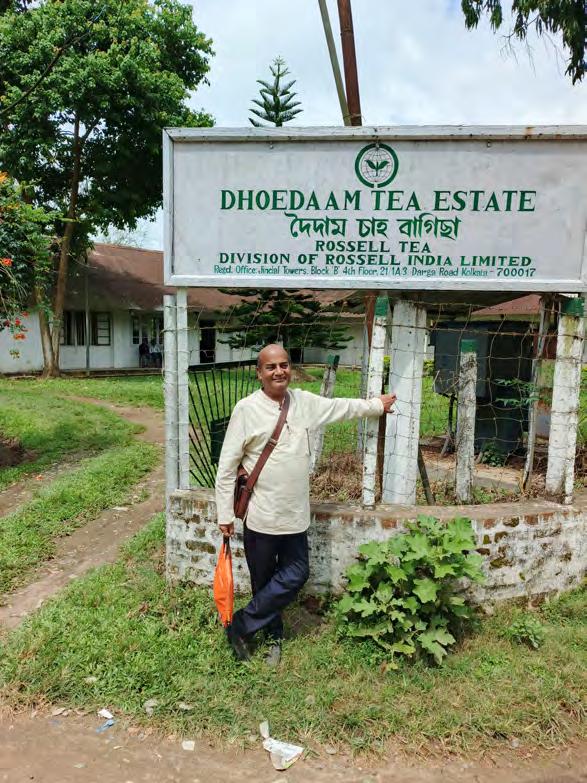
The lack of dedicated referral centres forces patients to travel long distances for treatment, resulting in delays in diagnosis and care which can lead to irreversible disability. Furthermore, stigma associated with leprosy continues to be a barrier, with people reluctant to seek help due to fear of discrimination.
The establishment of the two new centres bridges this gap by offering specialised care, counselling, and rehabilitation services. They also serve as an educational resource for healthcare professionals, community workers, and locals to help reduce the stigma associated with the diseases.
In many rural communities,


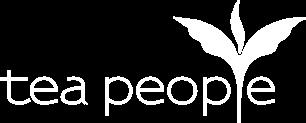
To mark the launch of our new partnership, the Tea People are offering a 15% discount on their products throughout December! Use the code ‘LEPRATEA15’ at checkout to activate your discount.
One-in-two people affected by leprosy face ongoing emotional health difficulties as a result of their diagnosis.


For World Mental Health Day in October, we created a thoughtprovoking video highlighting the prejudice faced by people affected by leprosy and LF.
Prejudice often stems from cultural, social, and psychological factors, giving rise to fear of differences, biases, stereotypes, and misinformation.
By understanding the roots of prejudice, we can address it directly: through dialogue and education, by cultivating empathy; seeking commonalities and embracing the richness of human diversity rather than fearing it.
Through community activities, Lepra works to dismantle the harmful myths and misconceptions that have long led to marginalisation, exclusion, and denial of basic human rights.
Our work within endemic communities provides us with an important platform to not only provide reliable and accurate information,
but also to provide advocacy and a voice for the voiceless
When people feel empowered to speak up and share their experiences of recovery, it encourages others to come forward and seek treatment. It is important we continue to amplify their message to help create a culture of acceptance and understanding.
Our World Mental Health Day campaign video for 2025, explores the systemic prejudice which continues to serve as a significant barrier to early detection and treatment.
With over 130 laws still in place globally which actively discriminate against people affected by leprosy, the video highlights the fact that, despite the availability of a ‘cure’, millions continue to live with the devastating impact of this neglected disease.
Please scan the QR code below to view the short video, and perhaps help by sharing our message to your friends and family, so they too can be part of ‘the cure’.


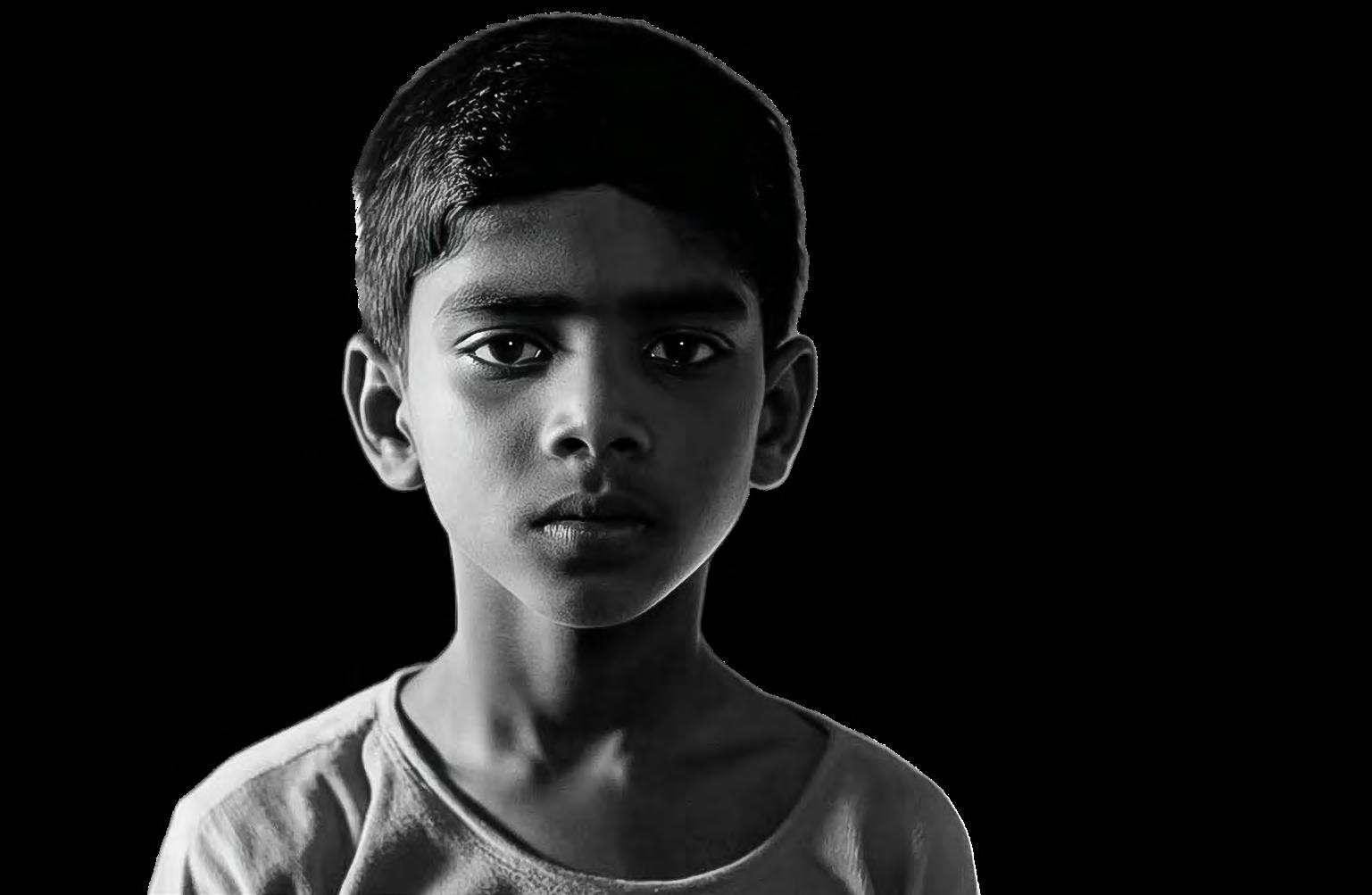
2! FROM YOU WE GET DOUBLE YOUR DONATIONS THIS WINTER!
From Tuesday 2 December 2025 through to midnight on 31 March 2026 we can double your donation to Lepra. Donations can be given to Lepra over the telephone, online, by cheque, or postal order.
Visit www.lepra.org/appeals or scan the QR code to get involved! *Terms and conditions apply


Help us support some of
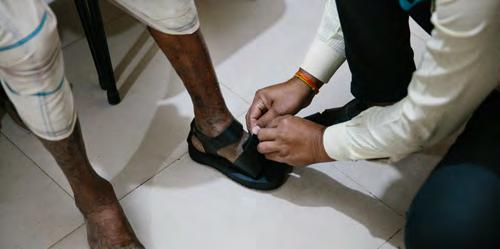
£25 will provide a person with a year’s supply of customised protective footwear and vital selfcare products, helping to protect from further injury and promote a dignified recovery.

£50 will allow us to fund a mobile shoe van for a whole day, helping to deliver protective footwear to 20-30 people across isolated regions of India.
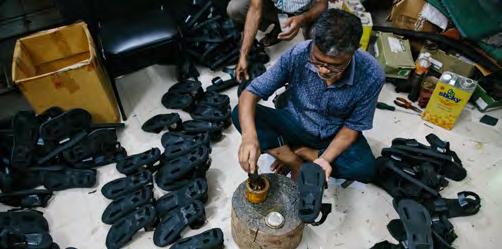
£200 will fund a specialist footwear technician for four weeks, to help provide high quality, personalised footwear for people with the greatest level of need.
Help people and their families affected by leprosy and LF to receive the right care, at the right time and in the right place.
Help keep our administration costs low. 1 2 3
Help us plan future projects in the areas which need it most.
Spread your giving across the year, and change or stop payments at any time.
Stay informed through regular newsletters and progress updates.



